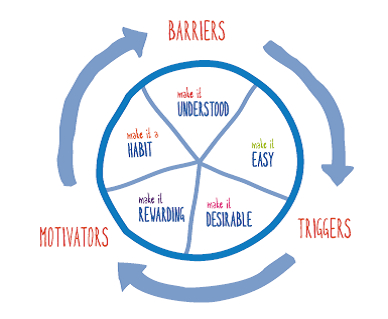Nearing the finish line of 2014 all kinds of lists are being published. Being informed about the Guardian’s sustainable business award brought back to mind the “five levers for change”. That was the sustainable living plan Unilever published a couple of years ago.
What I considered remarkable at that time was that the company not only considered sustainable business on their account, but also showed awareness about the impact of their products for sustainable living. It’s not only production that should turn into sustainability, by taking into account use of materials and energy and fair trade. But sustainable jeans are cleaned many times by the people that wear them. Consumers’ washing, cleaning and drying behaviour is as least as decisive in the jeans’ sustainable life time. So beyond sustainable production, companies should also encourage people to use their products in a (more) sustainable way, e.g. by cleaning jeans less often, buy less and recycle textiles. Nowadays, a couple of years later it is known that we can lease jeans or shwop them ourselves. Although it may be perceived counterintuitive to business (wo)men to promote less consumption.
Nowadays some business people spread the same word as ideologists. Sustainable living should be fun, happiness and desirable. That’s what should nudge people (including us!) towards sustainable living. It should be experienced vital for people in order ‘go through walls’. Just awareness of the consequences of our unsustainable behaviour will not be sufficient. Although most marketing experts state that often change starts there. Thus, first lever: make it understood to encourage acceptance for change. Second, make change easy to establish convenience and confidence. People should know what to do, and feel confident of doing it. Remember discussions about integrating the rhythm of the day with Facebook activities, that turned out feeling natural. Moreover, doing new behaviour should fit actual or aspirational self-image and in a way confirm our relations with other people. Thus, the third lever is to make it desirable to join a sustainable life style, buy particular products etc. In one way of another, people need to know when they are doing well, they need proof and payoff. They may be rewarded by saving energy (and money) but also for example by social status. But before changed behaviour will routinize into our new habits, we need a lot of reinforcement and reminding. Only then, sustainable behaviour will become the futures social norm. In short, change is all about learning and action.
And yes, I am aware that the debate initiated by The Guardian is sponsored by Unilever. But I do believe there is a role for businesses in mainstreaming sustainability. So what?!
